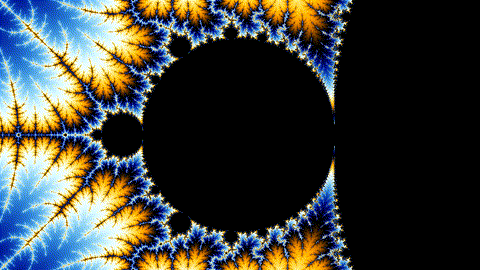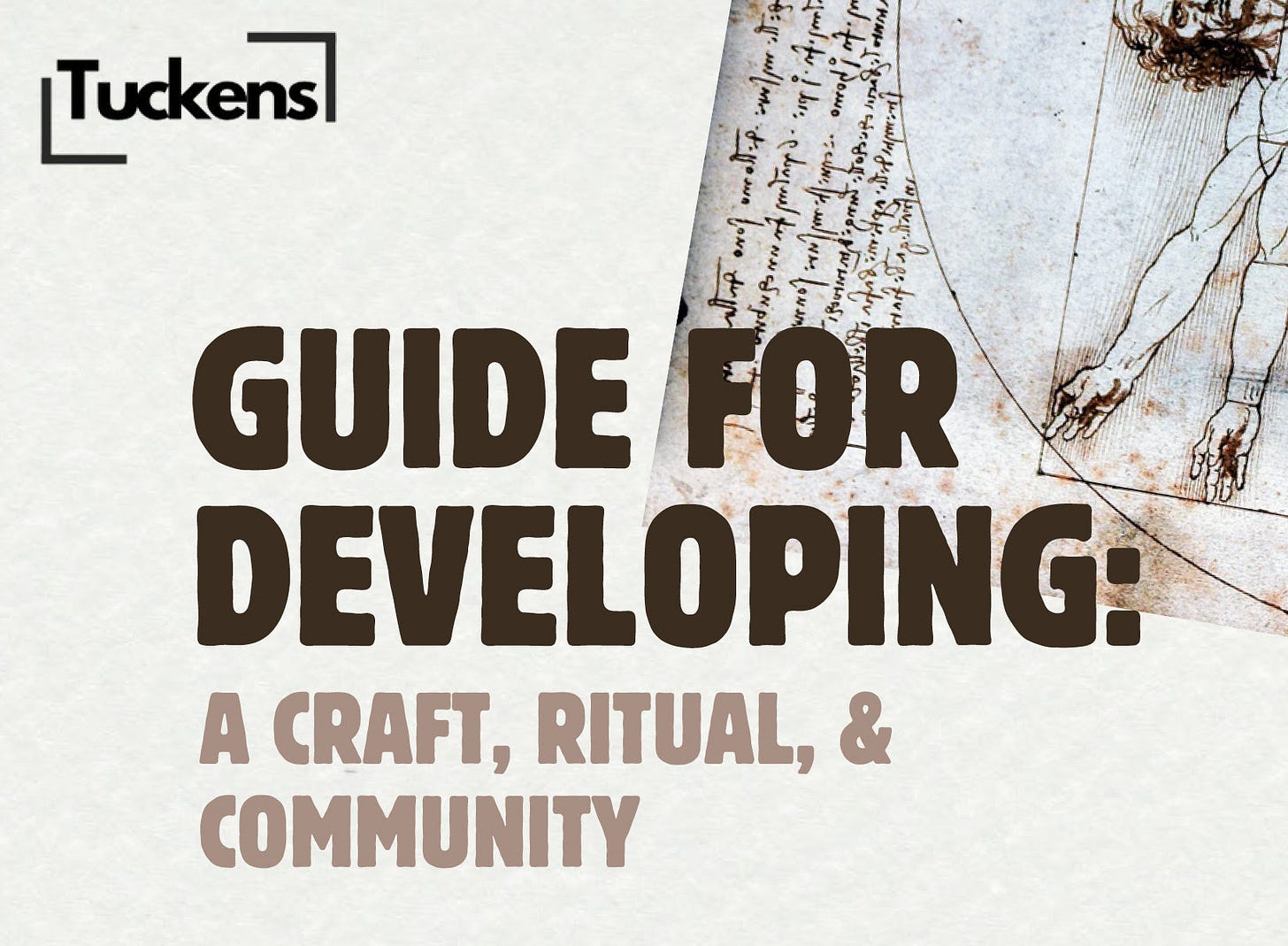Beyond the Divide: Part 1
Discover the underlying connection in a polarized world.
I’m here to explore what it means to integrate the mind, body, and soul. We will reflect on history, spirit, and wandering thoughts that all collide to give you the tools and insights you need to start living The Vitruvian Life.
Today’s topic is connection. We will focus on the underlying connection of our universe, why we tend to focus on differences, and how to start shifting our perspective toward experiencing unity.
Let’s start this off with a short story.
A Sage, Singer, and Surgeon walk into a bar…
The three sit down at a table and immediately begin to bicker. The sage is claiming he is a singer but the other two immediately retort.
Singer — “How can you be a singer when you are so obviously a Sage. This whole world knows you as a healer who can cure all diseases.”
Surgeon — “Well hold on Singer, this sage is no healer. You say he can cure diseases, I would challenge him to cure a tumor in the brain.”
Sage — “Clearly the singer has overstated my abilities. When I heal I do not cut by the knife but surgically orchestrate the cosmos to harmonize that what has been harmonized.”
Singer — “See I told you this Sage is no singer. He is a surgeon of the cosmos.”
Sage — “Well hold on there Singer. In order to heal I pronounce rhythmically the sound of the cosmos ‘Aummmmm’”.
In that manner, the Sage sang and the sick were healed.
A Sage, Singer, and Surgeon are more similar in ways than they are different, and yet you would never put them in the same category. Our proclivity to ignore what connects us and focus on differences is the underlying cause of all great wars, behind all great arguments, racism, sexism, hate, jealousy, and lust; these all stem from a distorted perception of reality.
We focus our attention on differences in our environment rather than on the similarities that connect all of us together. The underlining fabric of our universe is oneness; a web that interconnects all things. Often referred to as the matrix, the Egyptians had the idea of a universal net, and in India, there is Indra’s net; all cultures believe in a universal oneness that holds everything together.
Far away in the heavenly abode of the great god Indra, there is a wonderful net that stretches out infinitely in all directions. There is a single glittering jewel in each “eye” of the net, and since the net itself is infinite in dimension, the jewels are infinite in number. There hang the jewels, glittering like stars in the first magnitude, a wonderful sight to behold. If we now arbitrarily select one of these jewels for inspection and look closely at it, we will discover that in its polished surface there are reflected all the other jewels in the net, infinite in number. Not only that, but each of the jewels reflected in this one jewel is also reflecting all the other jewels, so that there is an infinite reflecting process occurring. –The Avatamsaka Sutra, ca 420 CE
By focusing on oneness rather than differences we connect back with nature and kindle a relationship between “I” and everything around us.
We Are Wired to Seek Out Differences
The reason that humans differentiate one thing from another stems from a mix of evolutionary wiring, psychological tendencies, and cultural reinforcement, all of which shape how we perceive and navigate the world.
From an evolutionary standpoint, our brains are built to spot distinctions. Early survival depended on quickly identifying threats or opportunities: Is that a predator or prey? Friend or foe? Edible or poisonous? This hyper-vigilance for differences got baked into our neural circuitry, particularly the amygdala, which flags anything unfamiliar as a potential risk. Psychologically, this translates into a bias called the "contrast effect1."
“As it goes joy came with sadness
Success came with struggle
With violence and madness
It came with I love you
With the ground and the ashes
It came with above view
With all the good places
It came with the bad news
We notice what stands out more than what blends in.
Then there’s the ego, the sense of self that thrives on separation. Carl Jung argued that individuation, the process of defining "me" apart from "not me," is a natural developmental stage. This isn’t inherently bad because it’s how we build identity and claim our position in society. But it often overshadows the underlying unity that holds the universe, society, and groups together.
The philosopher Alan Watts likened it to waves forgetting they’re part of the ocean3. When viewing a wave it can appear that it is not a part of the ocean, that it is separate. Similarly, we view ourselves as waves, fixating on our form and ignoring the water we all share. Indra’s Net illudes to the idea that we’re jewels obsessed with our own facets, missing the net itself.
Culture amplifies this as societies often reward differentiation, status, competition, and tribalism. Think of how history glorifies conquerors over unifiers, or how the news thrives on animosity rather than acts of harmony. Our uniqueness is a characteristic of our similarity, what makes us experience ourselves as separate and unique is only possible through self-forgetfulness of our underlying unity.
This focus on SELF isn’t beneficial in moments of crisis, love, or awe. The Macro events we experience like witnessing a birth, death, or a starry sky4 can jolt us into sensing oneness. The challenge is that these are fleeting, while our default mode keeps us zooming in on what divides. To shift toward oneness, as all great religions suggest, takes conscious effort and unlearning as much as learning, quieting the mind to see the duality we’ve ignored.
Duality is constantly blending, the marks we make in the world are always bleeding into everything else, the butterfly effect is never-ending, all-encompassing, never forgetting, and never pleased. Any ideal we have can only be based on something we deem lower, the tiers we build and ideas we promote can only be made visible through an opposite. The rich get richer because the poor get poorer, and society thrives because new thoughts have arisen.
Without the ocean, there is no wave — without YOUnity, there is no You.
Overcoming the Program
So if everything is connected then why do we struggle to perceive the world and all people as connected? We know that our proclivity to constantly categorize and separate everything we see into different boxes holds us back from experiencing a higher frequency of consciousness. You would think that with this knowledge of what is holding us back, we would be able to change, but in reality, this shift in perception is difficult and goes against our innate programming.
Our issue started with tribalism, where it was more beneficial for us to be in harmony with one tribe and at war with all others. This way of living did not evolve quickly but has been the norm for the entirety of humanity until the recent present and a few outliers in the past5. The programming is not just societal but is still wired into our DNA.
The problem of divisiveness and ignorance of unity is not going to solve itself in a day, but more importantly, it is not going to ever be solved if we stay ignorant and accept it as the norm. The work begins in the mind, it begins in the heart, it begins in the individual practicing mindfulness and awareness of his innate connection to all things.
The journey towards a unified world starts from within.
Thank you for reading.
May your eyes be bright and full of everlasting laughter.
My X account if you are looking to partake in deep, sensitive, and bright conversations. All it takes is 1 sentence to change your paradigm.
** Follow the guide below to start your journey of developing your ego **
The contrast effect is a cognitive bias where our perception of something is influenced by comparing it to something else, leading us to perceive differences or qualities more strongly than if we evaluated it alone.
Alan Watts explains the ocean and wave metaphor.
Our view of the night sky has almost vanished due to light pollution.
Outliers in the past refer to ancient Rome and other cultures that saw the benefits of unifying different cultures and tribes.






